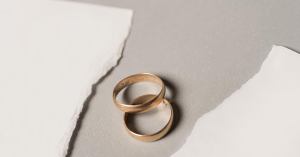The BBC is under increasing pressure to find a solution for five veteran female presenters who have been unable to work for months due to a merger of the company’s UK and international news channels. The women haven’t appeared on BBC News since March, and some have stayed at home against their wishes while the broadcaster constructs the framework of its streamlined rolling news operation. The five anchors affected are Martine Croxall, Karin Giannone, Geeta Guru-Murthy, Kasia Madera, and Annita McVeigh. Together, they have more than 100 years of experience with the BBC. It has been reported that some of the BBC news presenters have taken on work outside of the news channel in recent months. Madera has worked shifts at the World Service radio, while Giannone tweeted on Monday that she has been working with the BBC Monitoring project.
According to Deadline, colleagues are increasingly angry with the BBC over their treatment of the women, but there is no clear resolution to the conflict. The BBC is also being questioned about how much money it wastes while its senior anchors are on leave, with some estimating that the costs could be as high as six figures. During this period, the broadcaster is drafting freelancers to fill the gap in presenting, while employees receive “acting up pay” for anchor shifts. Some of the women affected are still receiving their full salaries despite the disruption in their schedules. According to one BBC journalist who does not work for the news channel, the situation is “appalling.” An additional newsroom source told Deadline: “I think there is a huge amount of sympathy [for the presenters]. I don’t think it’s rocket science to say they have been badly treated.”
Videos by PopCulture.com
BBC insiders say they are alarmed at the number of female presenters in limbo, not only because the women are older than 45 but because many have advocated for equal pay for women or worked as union representatives. There have been lawsuits filed in the past against the BBC over equal pay disputes and ageism. An ex-BBC news anchor said the anchors’ current situation indicates the company has not “learned any lessons.” In a statement, the BBC said: “We value all of our staff but we do not comment on individual HR matters.” As part of its consultation process, the BBC seeks alternative employment for those who risk losing their jobs. Upon exhaustion of these efforts, redundancies are made.
The women could not land any of the five UK-based chief presenter positions on the newly merged channel, which went to Matthew Amroliwala, Yalda Hakim, Christian Fraser, Lucy Hockings, and Maryam Moshiri. Even though some may have regarded this as a downgrade, the women were offered the chance to apply for eight correspondent/presenter slots. Currently, recruitment is in progress for the positions. A seven-year employee of the BBC, Nancy Kacungira, has been hired for a correspondent/presenter position, meaning seven vacancies are available.
Last week, the Culture, Media, and Sport Committee of the UK Parliament interrogated BBC Director General Tim Davie about the situation. John Nicolson, a Scottish National Party lawmaker, called it “absurd” and suggested the BBC was punishing the presenters, Deadline reported. Despite declining to comment on specific individuals, Davie insisted “no question that anyone would ever be punished.” He added, “We need a fair, good conversation with those individuals to make sure they are settled.” Referring to freelancers who cover presenter shifts, Davie said, “You never want to be in a position where you are wasting public money.” On April 3, the BBC announced that it would merge its UK and international news channels in an effort to reduce costs. However, the BBC presented the reorganization as a way to reinvent the news channel for the TikTok generation.








